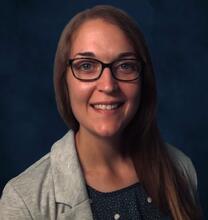Supporting Graduate Student Academic and Professional Success
Special Events
GradQuant occasionally organizes special events, such as guest speaker presentations and training opportunities, for the UCR research community. In addition to upcoming events, below is a short list of special events we organized in the past:
- Guest speaker presentations (past speakers from Stata and MathWorks)
- MATLAB training & competition in collaboration with UCR Library
- Academic guest speaker presentations
See below for information about our guest speaker events.
Guest Speakers
-
Spring 2025 - Stata Workshop Series with Dr. Chuck Huber
Stata Workshop Series
with Dr. Chuck Huber (from StataCorp and New York University)
Tuesday, April 15th; 10:00AM - 11:30am and 12:00PM to 1:30PM on Zoom
Dr. Chuck Huber from StataCorp will present a workshop series on Zoom this Spring on special topics in statistical analysis and programming using Stata:
- Introduction to Difference-in-Differences in Stata (10am-11:30am)
- Introduction to Mediation Analysis in Stata (12pm-1:30pm)
[See below for workshop descriptions.]
CLICK HERE to register at WC Online
Speaker's Bio
Dr. Chuck Huber, Director of Statistical Outreach, StataCorp
Chuck Huber is Director of Statistical Outreach at StataCorp and Adjunct Associate Professor of Biostatistics at New York University. In addition to working with Stata’s team of software developers, he produces instructional videos for the Stata Youtube channel, writes blog entries, develops online NetCourses and gives talks about Stata at conferences and universities. Most of his current work is focused on statistical methods used by behavioral and health scientists. He has published in the areas of neurology, human and animal genetics, alcohol and drug abuse prevention, nutrition and birth defects.
Session Information
Introduction to Difference-in-Differences (Tues, Apr 15th - 10:00AM to 11:30AM)
This talk will briefly introduce the concepts and jargon of difference-in-differences (DID) models and show how to fit the models using Stata's suite of DID commands. We will demonstrate how to fit models for repeated cross-sectional data using 'didregress' and for panel/longitudinal data using 'xtdidregress'. We will also fit heterogeneous DID models where the average treatment effect varies over time or cohort using 'hdidregress' and 'xthdidregress'. We will discuss the model assumptions and how to check these assumptions after fitting a model. We can check the parallel-trends assumption using 'estat trendplots' and 'estat ptrends' and we can check for anticipation of treatment using 'estat granger'. After fitting heterogeneous DID models, we will also demonstrate how to aggregate the average treatment effect among the treated (ATET) using 'estat aggregation' and how to visualize the trends in ATETs using 'estat atetplot'.
Introduction to Mediation Analysis (Tues, Apr 15th - 12:00PM to 1:30PM)
Mediation analysis is a statistical technique that is used to parse the direct, indirect, and total effect an independent variable (X) on a dependent variable (Y) in the presence of a mediating variable (M). For example, age (X) is associated with higher systolic blood pressure (Y). Age is also associated with higher weight (M) and increased weight is associated with higher systolic blood pressure (SBP). Age has a direct effect on SBP as well as an indirect effect on SBP through it's effect on weight. This talk will introduce the concepts of mediation analysis and demonstrate how to conduct mediation analysis using regression, structural equation modeling (SEM), and how to estimate bootstrap standard errors for mediation models with SEM.
-
Qualitative Data Analysis Workshop Series with Dr. Sara Grummert
Qualitative Data Analysis Workshop Series
with Dr. Sara Grummert (from Dedoose)
[for informational purposes only]
Dr. Sara Grummert from Dedoose will present a workshop series on Zoom this Fall on qualitative data analysis using Dedoose:- Getting Started with Dedoose
- Exploring Patterns and Relationships
Workshop descriptions are below.
Speaker's Bio
Dr. Sara Grummert, Director of Academic Engagement, Dedoose
Dr. Sara E. Grummert holds a dual appointment with Dedoose and the Institute for Mixed Methods Research. She leads strategy around how Dedoose engages and supports the larger academic and research community, with a focus on curating learning resources, conducting methods consultations, and training social scientists in how Dedoose can support more nuanced analyses.
Dr. Grummert earned her doctorate at the University of California, Riverside in the field of higher education administration and policy. Her areas of expertise include qualitative research design, qualitative data analysis, and advancing the use of visual methods.
Session Information
Getting Started with Dedoose: Project Set-up, Data Preparation, and Coding
This interactive workshop introduces participants to managing and analyzing qualitative and mixed methods data using Dedoose. Qualitative analysis strategies and theoretical foundations will be woven throughout the session. Participants will gain skills related to: data preparation and import, excerpting and coding, coding and codebook management, and memoing.
Exploring Patterns and Relationships: Advanced Tools in Dedoose
Building on the previous workshop, this workshop introduces participants to advanced data analysis concepts and tools in Dedoose, and how to add quantitative dimensions to analysis. Participants will gain skills related to descriptors and demographics, data visualizations, survey data, and data filtering.
-
Bringing Satellite Data Down to Earth with Guest Speaker (from Department of Computer Science and Engineering)
Bringing Satellite Data Down to Earth Workshop
with Guest Speaker (from Department of Computer Science and Engineering)
[for informational purposes only]
Our Guest Speaker from the Department of Computer Science and Engineering will present a workshop in person on data analysis with satellite image:
Workshop Description
Check out this workshop to explore satellite images! We will play with general operations that data scientists will do, and then we will introduce the going on research work in handling large scaled satellite images from UCR Big-Data-Lab.

